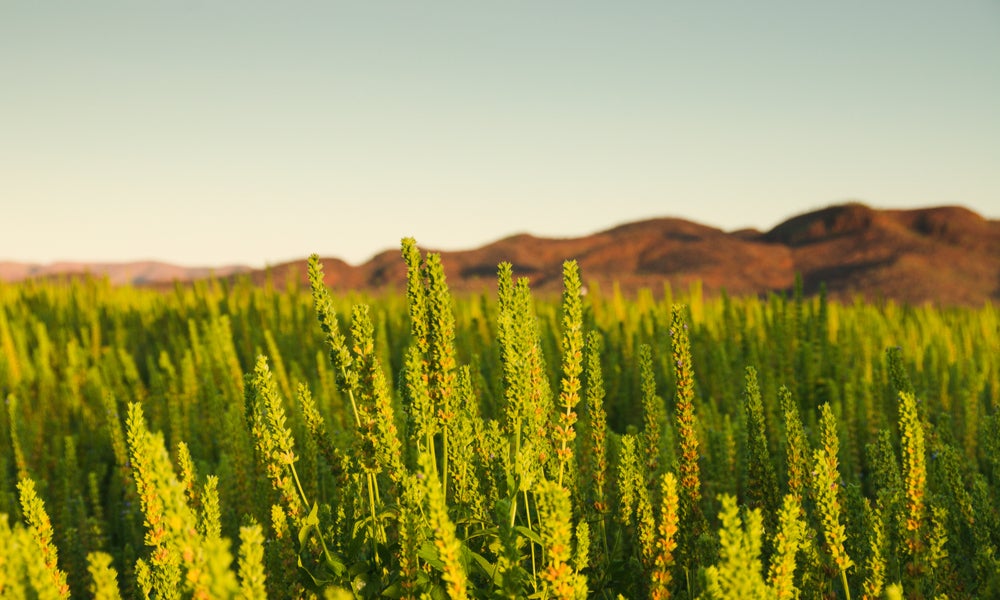How agribusiness could generate opportunities for Indigenous Australians
Agribusiness offers a spark of social change that could benefit Indigenous Australians, according to AGSM @ UNSW Business School Indigenous Leadership alumni
The agribusiness sector has contributed significantly to the Australian economy. Between 2016 and 2017, the industry contributed 3 per cent to Australia's GDP. By 2024, the value of farm production alone is predicted to reach about $64 billion.
Kylie Penehoe, an executive manager of agribusiness at the Indigenous Land and Sea Corporation (ILSC), recently joined 80 other Aboriginal and Torres Strait Islander executives, business leaders and community advocates at the inaugural AGSM Indigenous Leadership Alumni Conference.
The conference brought together alumni from AGSM @ UNSW Business School's three Indigenous Leadership programs: The Emerging Indigenous Executive Leaders Program, Aboriginal Career and Leadership Development Program and the Transport for NSW Aboriginal Career Development and Mentoring Program. These programs are delivered with the Elevate RAP Working Group and government partner collaborators.
During the conference, delegates discussed some of the biggest challenges facing Aboriginal and Torres Strait Islander people in the corporate environment, and the strength that diversity in business brings to the table. Ms Penehoe – a strategy enthusiast and proud Wonnarua and Wiradjuri woman – said she was determined to bring about social change through her work in agribusiness at the ILSC to benefit Indigenous Australians.
Growing interest in Indigenous agribusiness
All people should put themselves out there and test their limits, said Ms Penehoe, a current AGSM MBA student who also completed the AGSM Short Course: Emerging Indigenous Executive Leaders Program.
"I came into that program quite insecure; I've always been opinionated, but I've still been lacking in confidence. I walked away from that [the program] saying I need to be bolder and uncomfortable. You have to be brave and do it," Ms Penehoe said.

So, in her line of work, Ms Penehoe's bold ambition is to create real, meaningful change for Indigenous Australian communities. "We use agribusiness really as a vehicle to generate social-economic opportunities," explained Ms Penehoe, who described the aim of the ILSC's Agribusiness Investment Program.
The ILSC – a corporate Commonwealth entity established under the Aboriginal and Torres Strait Islander Act 2005 – was founded to assist Indigenous Australians with ownership and management of country, land and sea, to achieve economic, environmental, social and cultural benefits.
In January 2019, the ILSC established the Agribusiness Investment Program to provide a funding stream to support commercial growth, primarily through capital investment and business capability in the Indigenous agribusiness sector. The aim was to open up new opportunities for Indigenous Australians in a diverse range of agribusiness markets as well as geographical locations.
According to the ILSC, approximately 40 per cent of Australia's landmass has been formally recognised as having rights and interests held by Indigenous peoples and Ms Penehoe explained that Indigenous Australians have a real opportunity to participate in this sector.
According to Ms Penehoe, she has seen an increase in the number of impact investors, superannuation fund managers and asset managers seeking to invest in Indigenous agribusinesses.
"They were knocking on our door and saying: 'Hey, we've got this massive amount of capital and we want to invest in Indigenous AG [agribusiness] because people love it," she said.
"Indigenous business has greater downstream impacts … they're more likely to employ more indigenous people and procure more Indigenous products," she continued.
The biggest Indigenous agribusiness challenges
"Like all organisations, we have targets that we need to meet, and in our environment, we have a benefits framework to measure the social impact we are achieving," continued Ms Penehoe.

She continued to explain that an exciting development has been to test whether the right targets and metrics for Indigenous agribusinesses are in place.
Creating sustainable employment opportunities for Indigenous communities is another enormous challenge, continued Ms Penehoe. "So our role is getting a bit of Indigenous equity into some AG businesses," she said.
"What we're hearing is a lot of people saying to us: 'Yeah that's great that you've got employment opportunities [but] I want to sit at that table. I want to be a part of that decision-making. I want to have my opinions heard and expressed and valued and listened to'."
"We create more employment opportunities, more training opportunities... getting training certificates everywhere but we're not getting much sustainable employment opportunities out of that," she continued.
Increasing awareness of impact investing
"My organisation is traditionally a grant-making organisation, so that's been our core product. We grant people funds to help acquire land and manage their land – that's been our bread and butter," explained Ms Penehoe.
And although she said impact investing is still a "small niche" the conversations have shifted with "traditional financiers" starting to have more considered discussions about "what businesses can we invest in?"
"There has been a shift," she said. "Those hardcore financiers are going to realise that community sentiment no longer expects people to invest just purely in profitable stuff like your fossil fuels… your alcohol and tobacco, things like that."
"Traditionally, they probably never had to entertain the impact their financial decisions were having in the community. No longer are we standing by and allowing those things to go on," added Ms Penehoe.
For more information, contact Kylie Penehoe, Executive Manager of Agribusiness at the Indigenous Land and Sea Corporation.
